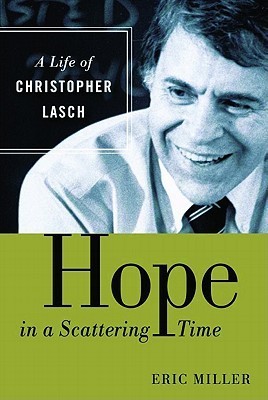More on this book
Kindle Notes & Highlights
by
Eric Miller
Read between
September 22, 2020 - March 23, 2021
influence
most contemporary scholarship on the family explained "everything except the things we most want to know" was
Under
the aegis of corporate capitalism this basic structuring of family life, essential for democratic civilization, has collapsed.
"the waning of parental authority and guidance,"
"Without struggling with the ambivalent emotions aroused by the union of love and discipline in his parents, the child never masters his inner rage or his fear of authority," he declared, making the child likely to develop "personality traits more
compatible with totalitarian regimes than with democracy."
Mere "formal instruction and discipline," the liberals' enduring hope, were not enough to form the kind of human being democracy required.13
a source of shelter and vestigial emotional warmth - a refuge no more. "The development of capitalism
Pa...
This highlight has been truncated due to consecutive passage length restrictions.
were no longer parenting; children, in turn, were being manipulated by institutions and infl...
This highlight has been truncated due to consecutive passage length restrictions.
strength nor the acuity ...
This highlight has been truncated due to consecutive passage length restrictions.
"beneath the appearance of contractual freedom, individual autonomy, and the rule of reason, domination still continued as the motor of history, class rule as the basis of wealth and economic power, and force as the basis of justice." For this more accurate if less pleasing
understanding they substituted holistic abstractions and fuzzy obfuscations, misconstruing the nature and direction of capitalist society, and of human existence itself.
Society did not simply cohere as a matter...
This highlight has been truncated due to consecutive passage length restrictions.
fundamental forces rooted in capitalist domination created the appearance of a naturally unified, fluid society with only occasi...
This highlight has been truncated due to consecutive passage length restrictions.
powerful "new ruling class," which had "elaborated new patterns of dependence." Itself profoundly dependent economically, intellectually, and psychologically on the world that liberal capitalism had made, the "managerial and professional elite," often with the best intentions, had propounded an ethos, outlook, and set of institutional dependencies that undermined with increasing force more promising ways of conceiving of politics, community, and the human person itself.
this subtle and kindly form of control that had, over the course of decades, led to "dependence as a way of life," and so the emergence of narcissism, which in this new climate was not denounced as a pathology but, strangely, heralded as an ideal, an attainment, the state of being that ensured success and approval in the new paternalist order. Thus, Lasch concluded, it is only through
an understanding of the history of this professional and managerial class that we can see "how our current difficulties arose."57
Was there a
The triumph of industrial capitalism had been possible, he explained, due to a "historic compromise in which people accepted a lower standard of work in exchange for a higher standard of consumption - too often confused with a higher standard of 'living."'
"A thorough
democratization of politics" was needed, and the president's challenge was to work toward fostering "a society composed of citizens, rather than clients and
consumers," a people who would "insist that the distribution of scarce resources, the distribution of sacrifices, and the nature of the discipline imposed by economic adversity are all collective decisions that should be made not by elites but by the people as a whole, who have to bear their costs."9
"above all the culture of... the managerial and professional elite that gets most of the social and economic advantages from the existing distribution of power." The blame needed to be more justly assigned. "These people have sold the rest of us on their way of life, but it is their way of life, first and foremost,
and it reflects their values, their rootless existence, their craving for novelty and contempt for the past, their confusion of reality with electronically mediated images of reality."
Most of his readers, it is worth pointing out, were not "the people" but the "professional-managerial elite."


